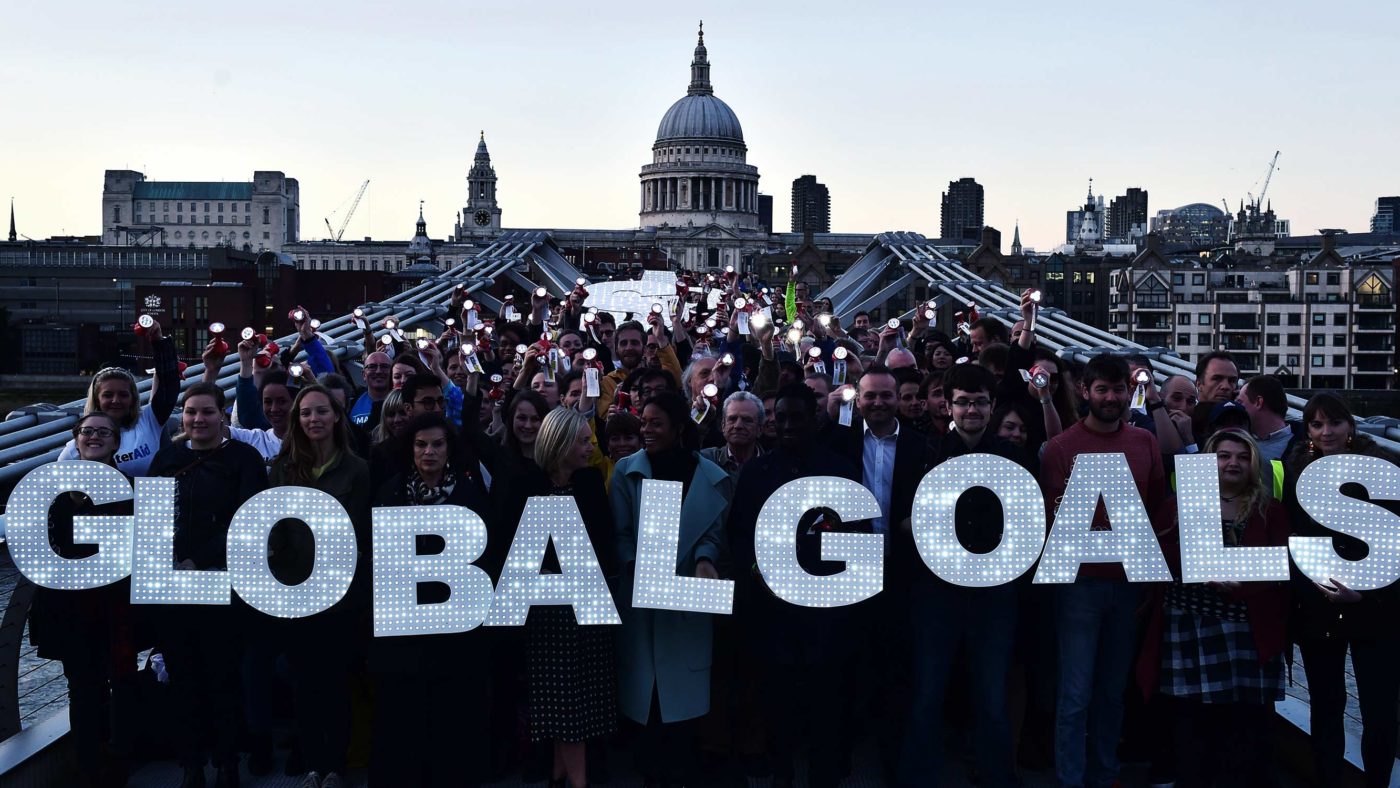In recent years, concerns over inequality have increasingly gained traction. Just this week, President Obama said that inequality was “the defining challenge of our time”. Earlier this year, the Times columnist Matthew Parris wrote:
“If the free market is to be defended in the new century, these inequities are no longer something from which the centre-right can turn away.”
Similarly, Foreign Secretary Boris Johnson said last year that he didn’t mind “people at the sharp end of the plane guzzling Château Margaux… but what people won’t accept is those at the back of the plane finding their in-flight meal getting smaller and smaller and their conditions getting more and more cramped.” And this summer Theresa May began her premiership with a clarion call for her new government to pass reforms to ensure we live in “a country that works for everyone, not just the privileged few”.
The issues of economic inequality are ones that Oxfam has been highlighting for years now. As we reported ahead of this year’s World Economic Forum at Davos, the world’s richest 1% now own more than the rest of the world’s population combined, and since the turn of the century, the poorest 50% of the world’s population have received just 1% of the total increase in global wealth.
This creates a distorted picture, with 7 out of 10 people now living in countries where the gap between rich and poor is greater than it was 30 years ago. In South Africa, for example, inequality is greater today than it was at the end of apartheid.
Oxfam’s concern is that too often the richest are getting richer at the expense of the rest of society – and especially at the expense of the poorest. As Michael Gove said at last year’s Conservative conference, “it is not a healthy or humane society where the gap between rich and poor grows so much”.
Looking back over the past few decades, the world has undoubtedly made astonishing progress in poverty reduction. Since 1990 one billion people have been able to lift themselves out of the misery of extreme poverty. For the first time in human history the proportion of the world living in poverty has fallen below 10 per cent. However, throughout this period, inequality has acted more and more to slow progress towards a poverty-free world.
As the IMF recently argued, global growth could have been greater over these past decades, had inequality been lower. And a paper by the Overseas Development Institute showed that even with the level of growth that we did see, an extra 200 million people could have been lifted out of extreme poverty if the benefits of that growth had been shared more evenly across society.
World Bank data has shown that it will not be possible to achieve the first of the UN’s Sustainable Development Goals – ending extreme poverty by 2030 – unless we simultaneously take action to reduce the gap between the rich and the rest.
Zambia is a textbook example of this problem. At first glance it is a success story. GDP growth per capita averaged three per cent between 2004 and 2013, pushing it into the World Bank’s lower-middle income category.
Yet despite this growth, the number of people living below the $1.25/day poverty line grew from 65 per cent in 2003 to 74 per cent in 2010. This is a result of growth that has benefited the few, whilst leaving too many behind.
During her first speech as Prime Minister, Theresa May made clear her belief that too much inequality undermines society, as people question whether the economy is rigged against the average citizen in favour of the wealthy and most powerful “elites”. The question is, what kind of targeted reforms can government undertake to address inequality in the UK and in the world, and to restore trust in institutions and in the economic system as a whole?
As one of the world’s largest economies, the UK also has a unique opportunity to take the lead in reforming the problems in the global systems that facilitate such huge inequalities. Businesses can be a great force for good and have enabled many people to lift themselves out of poverty.
However, in some cases, practices can be improved. For example, the Prime Minister’s pledge to tackle bad corporate behaviour through ensuring employee representation on boards and publishing pay ratios is a step in the right direction. But there is more to be done if we are to create an economy that works for everyone.
Over recent decades, corporations have increasingly prioritised short-term shareholder returns, rather than long-term sustainable growth and investment in the real economy. The average large public company in the UK was paying out 10 per cent of profit as shareholder dividends in 1970; today it has risen to 70 per cent. That money could otherwise be being used to innovate or increase productivity, including improving wages for the lowest paid and supporting the wider economy.
The UK can encourage different business models that prioritise the needs of wider society above short-term shareholder value, and therefore better support inclusive and sustainable economic development. John Lewis is one such example.
Starting with the UK’s own Overseas Territories and Crown Dependencies, we should take action on tax havens which are enabling some of the world’s biggest companies and wealthiest individuals to avoid paying tax in countries where they operate. The impacts of this are particularly severe for developing countries.
Above all, we must start recognising that economic growth which benefits a privileged few whilst leaving millions in poverty is not a success story. We must start judging policy-makers on how effectively they create fairer economies and stronger societies, in which everyone is given a fair chance in life.


